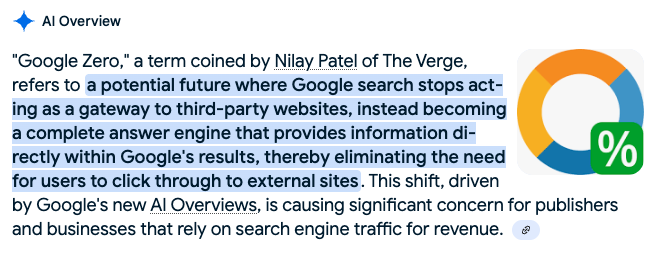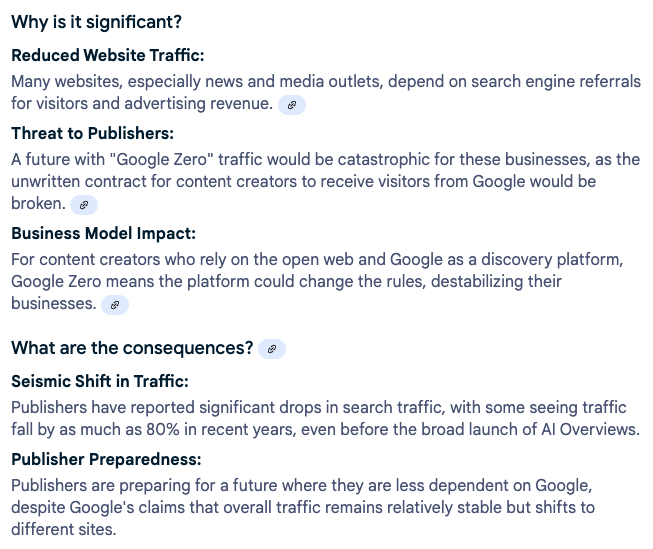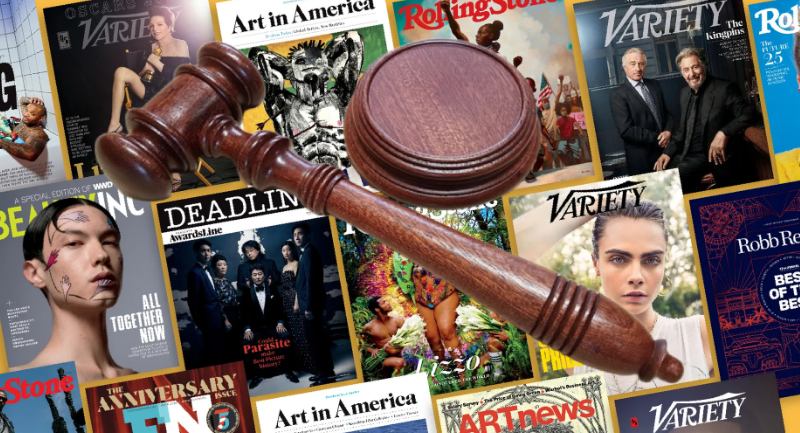Penske Media Corporation (PMC), a publisher with a near-monopoly over the leading US media industry trade and entertainment news sites, has become the first major US news company to sue Google and parent company Alphabet over its use of AI-created summaries in its search results.
PMC is the publisher of well-known titles including Variety, Rolling Stone, The Hollywood Reporter, Deadline, Indiewire, Billboard, Billboard Music Charts, WWD, SHE Media, Robb Report, Vibe, Dirt, and more. It owns the Golden Globes, and also stages live events like the ATX Television Festival and SXSW. Through its brands and live events, PMC reports that it reaches 340 million people each month.
It filed the antitrust suit in a federal district court in the District of Columbia – this is the same court which ruled last year that Google maintained an illegal monopoly following an antitrust filing by the US Department of Justice in 2020. In that case, the DOJ contended that Google used exclusive agreements with device makers like Apple and Samsung to reduce competition.
In its filing, PMC says that the business allows Google to crawl its websites to index its content for the purpose of generating search referral traffic. It argues that “the exchange of access for traffic is the fundamental bargain that supports the production of content for the open commercial Web”. PMC allege that Google now requires publishers to supply the content for other uses that “cannibalize or preempt search referrals,” by which PMC is referring to Google products like AI summaries.
Google has defended its use of AI summaries in its search results, which is has branded as ‘AI Overviews’.
Spokesman José Castañeda said: “With AI Overviews, people find search more helpful and use it more, creating new opportunities for content to be discovered. Every day, Google sends billions of clicks to sites across the web, and AI Overviews send traffic to a greater diversity of sites. We will defend against these meritless claims.”
The AI summaries extracts information from websites and displays answers to questions without the user needing to click through to a third party site. This zero-click push has been labelled by critics as ‘Google Zero.’
As Google explains through its own AI summary:

Google has also helpfully summarised the concerns levelled against AI Overviews in its Google Zero AI Overview:

It follows a similar lawsuit filed against Google in February by Chegg, an online education business that rents text books and offers tutoring. It claimed that Google’s AI-generated overviews is eroding demand for original content and has undermined publishers’ ability to compete.
Other media publishers have filed suits against other AI companies. In October of last year, Rupert Murdoch’s Dow Jones and the New York Post filed against Perplexity AI. It accused the AI company of copying large volumes of copyrighted work.
In a statement, News Corp CEO, Robert Thomson, said: “Perplexity perpetrates an abuse of intellectual property that harms journalists, writers, publishers, and News Corp.”
There is also an ongoing copyright infringement lawsuit filed by The New York Times against OpenAI and Microsoft.
